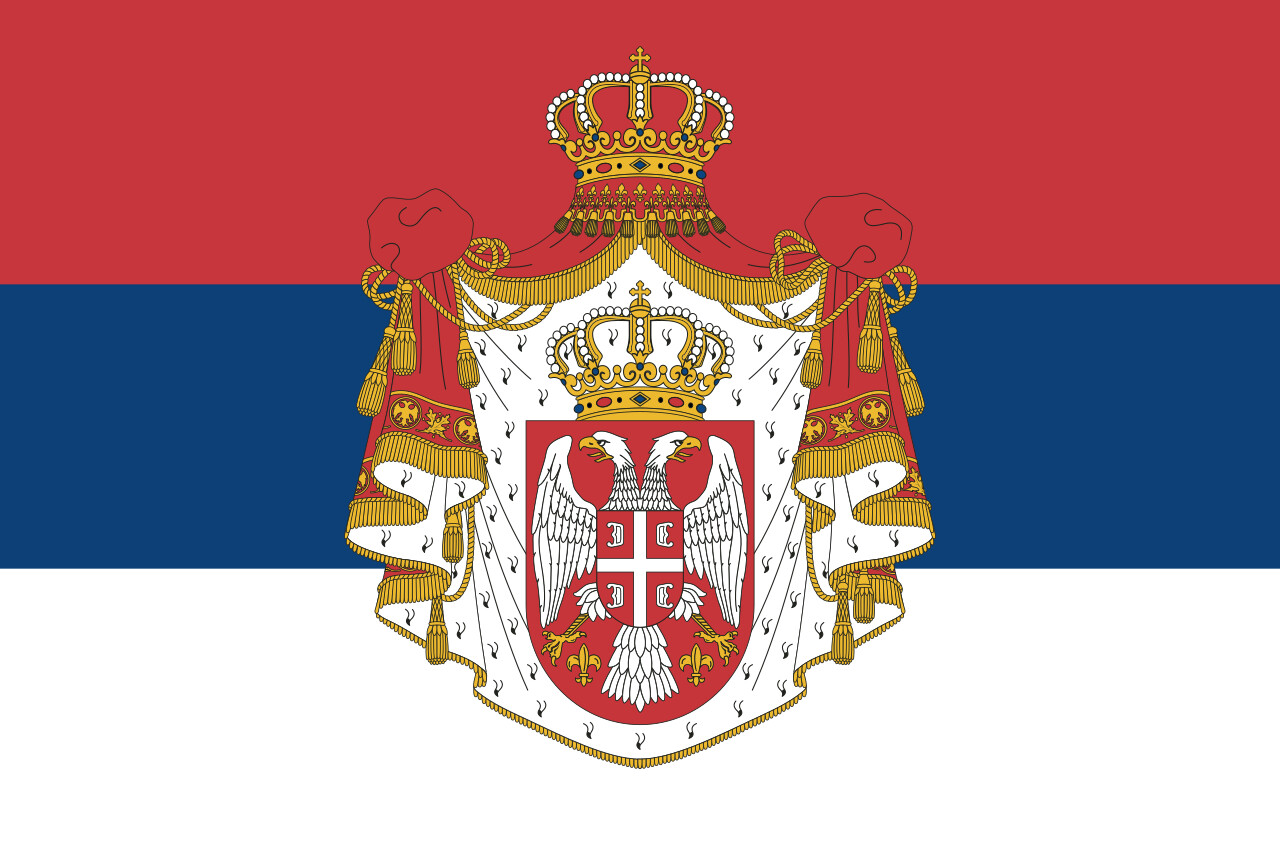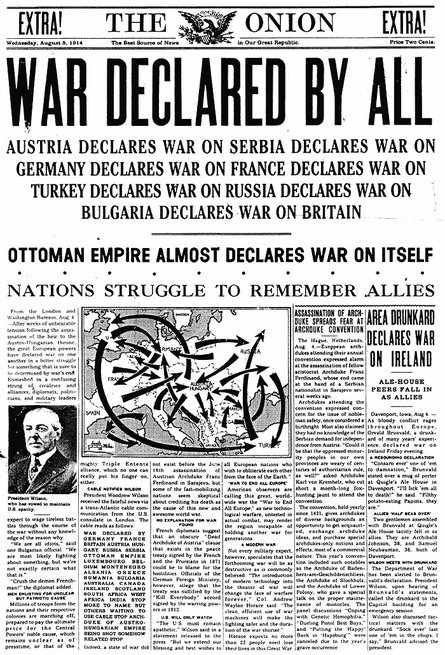The Pittsburgh Press (July 28, 1914)

Declaration of war made after capital is taken
Reported in Paris, Berlin and London that forces of dual monarchy crossed Danube and are occupying Belgrade deserted at approach
LONDON, England (UP) – Austria today formally declared war against Servia, according to Vienna dispatches received here. This announcement quickly followed the refusal of Austria to suspend hostilities at England’s suggestion pending mediation.
Foreign Minister Berchtold of Austria made it plain in a courteous note to Sir Edward Grey that Austria had gone too far to turn back.
The Austrian reply to Grey’s proposal was a flat rejection of any scheme of intervention by the power except plans looking toward the localization of the war.
VIENNA, Austria – Military measures and Austria’s present course of action as regards Servia cannot be interrupted, pending negotiations looking toward mediation. This was the reply of Foreign Minister Berchtold today to the suggestion of Sir Edward Grey that hostilities be suspended while Germany, England, France and Italy arranged for ambassadorial conferences.
Austria’s reply to the proposal of the British Foreign Secretary was a courteous note thanking him for his efforts, but was nothing less than a diplomatic refusal to accept mediation.
LONDON, England – Reports received in Paris, Berlin and London today indicate that Austrian troops have crossed the Danube into Servian territory.
Two army corps occupied Belgrade without resistance, according to word reaching the Austrian embassy in Paris. Unofficial reports in Berlin and London declare a detachment of Austrians invaded Servia at Mitrovitz, 50 miles northwest of Belgrade. The Servians, it is stated, withdrew before the advance of the Austrians.
Confirmation of the report that the Austrians crossed the frontier in an advance upon Mitrovitz was lacking today.
It was officially stated from Vienna that eight army corps had been mobilized.
London and all continental markets were still extremely nervous today.
A Central News dispatch from Berlin published here states that Germany has officially rejected Sir Edward Grey’s mediation proposal. There is no confirmation of the Central News dispatch and following its publication, Premier Asquith stated in the House of Commons that there were no developments in the situation.
It is believed in official circles here that the dispatch merely places a different interpretation upon the Kaiser’s attitude than is shared by the other Berlin correspondents, who do not regard the Emperor’s reply as a final rejection.
In diplomatic circles, a new hopeful angle was found in reports from St. Petersburg that Foreign Minister Sazonoff was urging upon Servia a plan through which the demands of Austria may be satisfied and at the same time preserve the sovereignty of the Belgrade government.
‘Stood it enough,’ says Czar
ST. PETERSBURG, Russia – Taking the view that Russia has done all possible to avert a disastrous war and that it now rests with Germany to wield influence upon Austria, the Czar left on his scheduled visit to the Finnish skerries today.
Although the general situation did not appear to be greatly improved today, it was not any worse, and diplomats were distinctly encouraged. The reply of the Kaiser to Sir Edward Grey’s suggestion of mediation was awaited.
It was reported today that the Czar himself prompted the firm stand taken by Russia in refusing to countenance the destruction of Servia by Austria with Germany backing up the dual monarchy and threatening to war upon any power that might interfere.
“We have stood this sort of thing for seven years. It is enough,” the Czar is reported to have declared. The mobilization orders were then issued.
The general tone of assertions of Russian officials in favor of Servia was less warlike today. The passing of yesterday without an invasion of Servia created a favorable impression, and there was admittedly hope that diplomacy might triumph over the threats and preparations for war.



